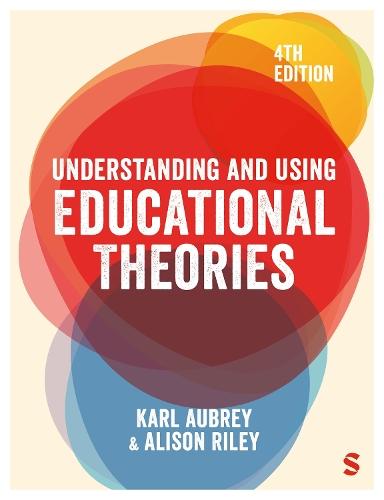Overview
This textbook gives readers an accessible overview of 20 of the most influential thinkers on education, including long-established names (Vygotsky, Piaget, Bruner), more recent theorists (Dweck, Goleman, Rosenshine) and other key individuals whose writing has helped shaped our views on teaching and learning. Each chapter includes practical examples showing how theories can be used to inform classroom teaching, and critiques of each theorist exploring opposing viewpoints and the strengths and weaknesses of different ideas. This fourth edition includes: A new chapter on John Sweller and cognitive load theory A new ′next steps′ feature in every chapter, offering research project suggestions for students, and suggestions for essay questions and discussion topics for tutors. This is essential reading for any university course that covers learning theory, with particular relevance for initial teacher education, education studies and early childhood degrees.
Full Product Details
Author: Karl Aubrey ,
Alison Riley
Publisher: Sage Publications Ltd
Imprint: Sage Publications Ltd
Edition: 4th Revised edition
ISBN: 9781036206918
ISBN 10: 1036206912
Pages: 424
Publication Date: 13 December 2025
Audience:
College/higher education
,
Tertiary & Higher Education
Format: Paperback
Publisher's Status: Forthcoming
Availability: Not yet available

This item is yet to be released. You can pre-order this item and we will dispatch it to you upon its release.
Author Information
Karl Aubrey is a Visiting Tutor on the Professional Studies in Education programmes at Bishop Grosseteste University. Prior to this Karl was the Programme Leader for a range of initial teacher education and professional development programmes at a large city further education college. Between 2003 and 2005 he was seconded to the DfES Standards Unit as a learning and teaching practitioner in the East Midlands. Karl has contributed to the Oxford Dictionary of Education. His doctoral thesis explored the reforms in further education teacher education from 2000 to 2010, from the viewpoint of teacher educators. Karl’s research interests include inclusion, education policy, pedagogy and work-based learning. Alison Riley is the Programme Leader for the BA(Hons) Early Childhood Studies degree at Bishop Grosseteste University, she has also worked on a number of educational-related programmes at the university including initial teaching training courses. Prior to joining Bishop Grosseteste University Alison spent sixteen years working in primary education, as a classroom teacher, deputy head teacher and finally head teacher of a large junior school. Alison has been involved in a number of collaborative projects and has recently been involved in an EU-funded project researching ‘Creativity in Early Science and Mathematics Education’. Alison has recently commenced doctoral studies in which she is researching the journey of students entering higher education with alternative qualifications.



